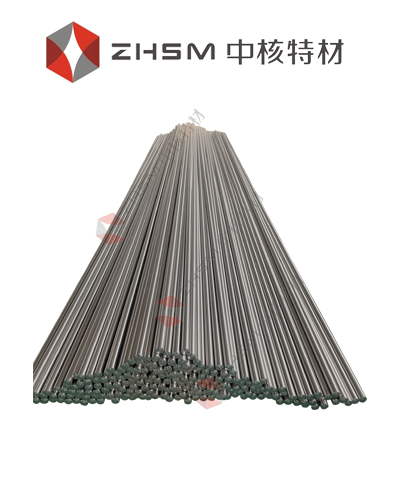Although titanium material has good stability, its surface will be corroded under specific conditions Medical titanium material The manufacturer briefly introduces several local corrosion characteristics of titanium materials:
1. The crevice corrosion resistance of titanium is particularly strong, and crevice corrosion occurs only in a few chemical media. The crevice corrosion of titanium is closely related to temperature, chloride concentration, pH value and crevice size. According to relevant data, crevice corrosion is easy to occur when the temperature of wet chlorine is above 85 ℃. For example, some plants use a packed tower to directly cool the wet chlorine gas before the cooler to reduce the temperature to 65~70 ℃, and then enter the titanium cooler to improve the crevice corrosion resistance. The effect is also very significant. Practice has proved that reducing temperature is one of the effective methods to prevent crevice corrosion. Titanium crevice corrosion has also occurred in high temperature sodium chloride solution. In a word, Ti-0.2Pd and other titanium alloys shall be used for parts and components prone to crevice corrosion, such as sealing surfaces, tube sheet and tube expansion joints, plate heat exchangers, contact parts between tray and tower body, and fasteners inside the tower, and crevices and stagnant areas shall be avoided during design. For example, the fasteners in the tower shall not be connected by bolts. The expanded joint densified seal welding structure is better than the simple expansion joint for the tube sheet and tube. For the flange sealing surface, the asbestos pad should not be used, but the polytetrafluoroethylene film wrapped asbestos pad should be used.
2. High temperature corrosion
The high-temperature corrosion resistance of titanium depends on the characteristics of the medium and the performance of its own surface oxide film. Titanium can be used as structural material up to 426 ℃ in air or oxidizing atmosphere, but at about 250 ℃, titanium begins to absorb hydrogen obviously. In complete hydrogen atmosphere, when the temperature rises above 316 ℃, titanium becomes brittle due to hydrogen absorption. Therefore, without extensive tests, titanium should not be used as chemical equipment with a temperature above 330 ℃. Considering hydrogen absorption and mechanical properties, the service temperature of all titanium pressure vessels should not exceed 250 ℃, and the upper limit of the service temperature of titanium tubes for heat exchangers is about 316 ℃.

3. Stress corrosion
In addition to a few media, industrial pure titanium has good resistance to stress corrosion, and damage to titanium equipment caused by stress corrosion is rare. Industrial passivation titanium can only produce stress corrosion in fuming nitric acid, some methanol solutions or some hydrochloric acid solutions, high temperature hypochlorite, molten salt with temperature of 300~450 ℃ or NaCl containing atmosphere, carbon disulfide, n-hexane, dry chlorine and other media. The tendency of stress corrosion cracking of titanium in nitric acid increases with the increase of NO2 content and the decrease of water content. In anhydrous nitric acid containing 20% free NO2, the stress corrosion tendency of titanium reaches Z. When concentrated nitric acid contains more than 6.0% NO2 and less than 0.7% H2O, even at room temperature, commercial pure titanium will also undergo stress corrosion cracking. Serious stress corrosion and explosion occurred when titanium equipment was used in 98% concentrated nitric acid in China. Industrial pure titanium is sensitive to stress corrosion cracking in 10% hydrochloric acid solution, while titanium produces stress corrosion cracking in 0.4% hydrochloric acid plus methanol solution.
The content of this article comes from the network. If you have any questions, please contact me to delete it!

